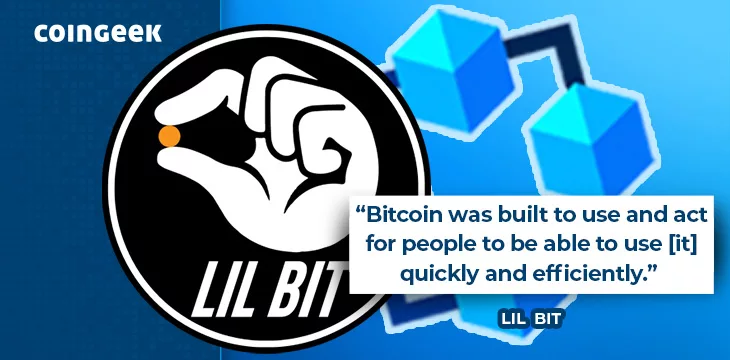|
Getting your Trinity Audio player ready...
|
Rebecca Liggero Fontana hosted the latest CoinGeek Roundtable on blockchain and iGaming. Joining her were Pete from Lil Bit, Alex Agut from HandCash, and Miles Malec from Champions TCG. Check out discussions on micropayments, affiliate programs, on-chain transactions, and the BSV blockchain below.
How does blockchain give your company competitive advantages?
Liggero kicks things off with this question. Why use blockchain at all? What are the advantages of each panelist’s company?
Miles Malec says games like Hearthstone allow people to buy cards and build their decks with credit cards, but they don’t enable players to trade the cards. Champions TCG has an advantage in that it allows the trading of cards after they’ve been purchased. The tracking of these cards behind the scenes is where the blockchain comes into play, but otherwise, players don’t even know about it.
Pete says that all bets are to/from wallets directly at Lil Bit. Whereas Web 2.0 online casinos may accept deposits in Bitcoin or other digital currencies, they still act as a bank and take custody of player funds. At Lil Bit, funds only leave the players’ wallet when a bet is made, and they return (or not) as soon as the bet is settled. Everything is done on the BSV blockchain.
Alex Agut says HandCash has shifted from a wallet to a gaming platform. Over 50% of its clients are gaming companies looking to disrupt the competition. The main things HandCash wants to facilitate are player-to-player transactions, trading of digital items, etc. The gaming companies will take a small percentage of each transaction, changing how games are monetized. He believes peer-to-peer commerce is the key to unlocking new opportunities for all.
How does your company utilize micropayments?
Malec says they’re used in the process of buying cards, trading them, etc. For example, there are cards in the HandCash marketplace for a few pennies. He reiterates that the BSV blockchain is in the background, and they don’t find it necessary to put every move or in-game transaction on the blockchain.
Pete says Lil Bit users can make tiny bets of as little as 1/1,000th of a cent. Small, super-fast microtransactions are at the heart of everything. It also has a leaderboard that pays a jackpot based on the percentage of correct bets made by the user. The Lil Bit referral system also uses micropayments.
Agut says micropayments enable everything HandCash does. For example, multiple parties can be paid from one transaction, which stops the parties involved from being money transmitters. Giving another example, he says if Miles sells 7,000 cards, payments can be sent to all participants in the transaction automatically. As Miles will explain later, that could even involve the store that initially sold a card receiving ongoing royalties on its resale.
Speaking on the involvement of Bitcoin, Agut says that stablecoin integration will soon make it possible for blockchain and Bitcoin to fade into the background. Right now, there are too many questions about the fluctuating value of the BSV token.
Malec tells Champions TCG wants to bring in regular people with no mention of Bitcoin whatsoever. They don’t want a player to buy a card for $0.07 and wake up to find it’s only worth $0.06.
Pete shares that some of the players he got to test Lil Bit did notice the price fluctuation, but to gamblers, this isn’t such a big deal. All bets are denominated in BSV, but players can send dollars to and from their wallets.
What about affiliate and referral programs? How do yours work?
Malec says theirs could involve individuals, influencers, or even game stores. He shares they can come to an agreement with stores whereby they can put no money down, doesn’t have to stock physical items, and the cards can become their highest margin items. Furthermore, they can earn royalties in perpetuity on the resale of cards they originally sold.
How popular has Champions TCG been so far? Malec reveals the initial 10,000 cards on the BSV blockchain and 30,000 on BTC sold out immediately. They launched a further 1 million cards several weeks back, and 300,000 have been sold already.
Pete explains that affiliates can get a cut of every wager made on Lil Bit by simply sharing a link. Unlike in the traditional iGaming affiliate world, commissions aren’t based on the players’ losses. The commission (1-3%) at Lil Bit is paid instantly when the bet is made.
Agut says most of the HandCash clients have referral programs. HandCash also has one in which it shares a percentage of all its earnings with the affiliate.
About on-chain transactions and data
Pete says doing everything on-chain offers total transparency and can also teach players about the blockchain. They can click a link and explore a transaction on the blockchain, learning as they do so.
Malec explains that the movement of cards from one wallet to another is tracked on the blockchain. That’s the extent of their use of the blockchain right now, and it enables great features such as original card sellers being paid royalties in perpetuity.
Agut says all HandCash transactions are on-chain. He says not all data needs to be on the blockchain, but crucial things should be.
How are you utilizing the community to get the word out?
Malec says the community is a huge part of the Champions TCG project. He wants to extend its reach into different communities such as Dogecoin and others. He thanks the community for its valuable feedback so far.
Agut states that HandCash has never spent a cent promoting the platform other than a few giveaways. The community encourages and evangelizes the product, and he thanks them for that.
Pete says the friends and people he initially let test Lil Bit have provided valuable feedback that helps guide what games should be built. He wants to grow outside the BSV blockchain community and bring people from the outside in.
To hear more detailed answers to these questions and learn more about on-chain transactions, 1Sat ordinals, and the importance of the BSV blockchain in all of these applications, check out the CoinGeek Roundtable via the link above.
Watch: Blockchain 4 Gaming & CoinGeek Bitcade Warsaw highlights

 03-04-2026
03-04-2026 




